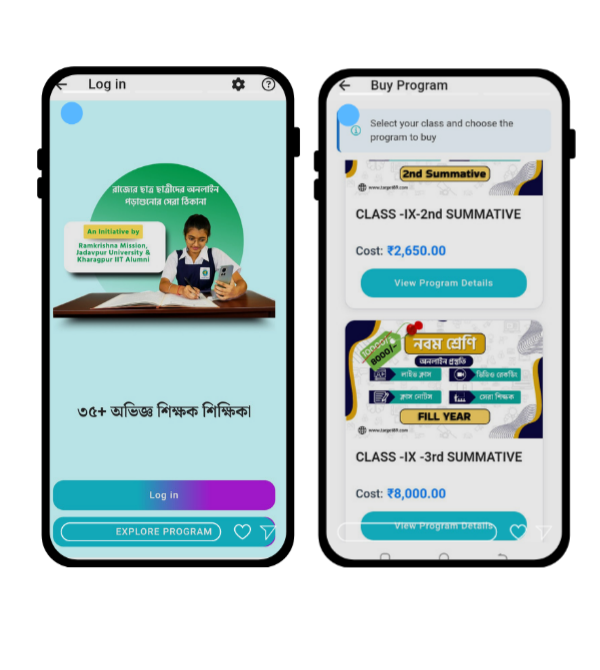Sales training is a critical component for the success of any sales team, ensuring they have the skills, knowledge, and confidence to sell products or services effectively. An LMS, or Learning Management System, is a powerful tool that can revolutionize the way sales training is delivered and managed. By leveraging an LMS, organizations can provide comprehensive, consistent, and accessible training to their sales teams, regardless of location.
An LMS is a software application that allows organizations to create, deliver, and track training programs. For sales training, an LMS can provide a structured and scalable approach to learning, ensuring that all team members receive the same high-quality training. This consistency is crucial for maintaining brand integrity and delivering a uniform sales message to customers.
One of the primary benefits of using an LMS for sales training is accessibility. Sales representatives often have busy schedules and may be spread across different geographic locations. An LMS allows them to access training materials at their convenience, from any location with internet access. This flexibility ensures that training does not disrupt their daily activities and can be completed at a pace that suits each individual.
Moreover, an LMS can offer a variety of interactive and multimedia elements, such as videos, quizzes, and simulations, which can enhance the learning experience and improve knowledge retention. Sales training can often be complex, involving product knowledge, sales techniques, and customer relationship management. By using diverse content types, an LMS can cater to different learning styles and make training more engaging.
Additionally, an LMS provides robust tracking and reporting features. Managers can monitor the progress of their sales team, identify areas where individuals may be struggling, and provide targeted support. This data-driven approach ensures that training is effective and that sales representatives are continuously improving.
To summarise, an LMS is an invaluable tool for delivering effective and scalable sales training. By providing accessible, engaging, and consistent training, organizations can empower their sales teams to perform at their best and drive business success.
Benefits of Implementing an LMS for Sales Teams
Implementing an LMS for sales training offers numerous benefits that can significantly enhance the performance and efficiency of a sales team. Here are some of the key advantages:
1. Centralized Training Platform: An LMS provides a centralized platform where all training materials, resources, and courses are stored. This centralization makes it easy for sales representatives to access everything they need from one place, reducing the time spent searching for information and ensuring that everyone has the most up-to-date content.
2. Consistent Training: Ensuring that all sales team members receive the same training is crucial for maintaining a consistent sales approach and message. An LMS standardizes the training process, delivering uniform content to all learners. This consistency helps in building a cohesive team that works towards common goals with a unified strategy.
3. Flexibility and Accessibility: Sales representatives often work in diverse locations and have varying schedules. An LMS allows them to access training materials at any time and from any place, offering flexibility that traditional classroom training cannot match. This flexibility ensures that training fits into their schedules without disrupting their work.
4. Interactive and Engaging Content: Modern LMS platforms support a variety of multimedia content, including videos, interactive quizzes, and simulations. These engaging formats can make learning more enjoyable and effective, helping sales reps to better retain information and apply it in real-world scenarios.
5. Real-Time Tracking and Reporting: An LMS provides detailed analytics and reporting tools that allow managers to track the progress and performance of their sales team. This data-driven insight helps identify strengths and weaknesses, enabling targeted interventions and support to improve overall performance.
6. Cost-Effective Training Solution: Traditional training methods often involve significant costs related to travel, accommodation, and physical materials. An LMS reduces these expenses by delivering training online. Additionally, once created, training content can be reused, further lowering costs over time.
7. Continuous Learning and Development: An LMS facilitates ongoing learning by providing access to a wide range of resources and courses. Sales reps can continuously improve their skills and knowledge, staying up-to-date with the latest industry trends and sales techniques.
8. Personalization: An LMS can offer personalized learning paths tailored to the specific needs and roles of individual sales reps. This customization ensures that each team member receives relevant training that addresses their unique challenges and goals.
In conclusion, implementing an LMS for sales training brings substantial benefits, from improved accessibility and consistency to cost savings and personalized learning experiences. These advantages collectively contribute to a more knowledgeable, efficient, and successful sales team.
Choosing the Right LMS for Your Sales Training Needs
Selecting the right LMS for your sales training needs is a critical decision that can significantly impact the effectiveness of your training program. Here are several key factors to consider when choosing an LMS:
1. Identify Your Training Goals: Before selecting an LMS, clearly define your sales training objectives. Determine what skills and knowledge you want your sales team to acquire, and how you plan to measure success. This clarity will help you choose an LMS that aligns with your goals and supports the desired outcomes.
2. User-Friendly Interface: The LMS should have an intuitive and user-friendly interface that is easy for both administrators and learners to navigate. A complex system can lead to frustration and lower adoption rates among sales reps. Look for platforms that offer a smooth and engaging user experience.
3. Content Compatibility: Ensure that the LMS supports various types of content, such as videos, PDFs, quizzes, and interactive simulations. This versatility allows you to create diverse and engaging training materials that cater to different learning styles and preferences.
4. Mobile Accessibility: Sales teams are often on the move, so it’s essential that the LMS is mobile-friendly. Check if the platform offers a responsive design or dedicated mobile apps that allow sales reps to access training materials from their smartphones or tablets, anytime and anywhere.
5. Integration Capabilities: The LMS should seamlessly integrate with other tools and systems your organization uses, such as CRM software, HR systems, and communication platforms. Integration ensures a cohesive learning experience and allows for efficient data sharing and reporting.
6. Scalability: Consider the scalability of the LMS. As your organization grows, your training needs will evolve. Choose a platform that can accommodate an increasing number of users and expanding content without compromising performance.
7. Reporting and Analytics: Robust reporting and analytics features are essential for tracking the progress and performance of your sales team. Look for an LMS that offers detailed insights, customizable reports, and the ability to track individual and team progress. This data is invaluable for assessing the effectiveness of your training program and making informed decisions.
8. Support and Training: Evaluate the level of support and training provided by the LMS vendor. A reliable support system, including tutorials, customer service, and training resources, is crucial for ensuring a smooth implementation and ongoing use of the platform.
9. Cost and ROI: Consider the cost of the LMS in relation to your budget and the expected return on investment (ROI). Look for transparent pricing models and evaluate the long-term benefits of the platform, including potential cost savings from reduced travel and physical training materials.
10. Trial and Feedback: Before making a final decision, take advantage of free trials or demos offered by LMS vendors. Involve a few members of your sales team in testing the platform and gathering their feedback. This hands-on experience will help you assess the LMS’s suitability for your training needs.
In summary, choosing the right LMS for your sales training requires careful consideration of your goals, user experience, content compatibility, integration capabilities, and more. By selecting a platform that aligns with your needs, you can create an effective and scalable sales training program that drives success.
Creating Engaging and Effective Sales Training Content
Creating engaging and effective sales training content is crucial for ensuring that your sales team is well-prepared and motivated. Start by identifying the core competencies and skills your sales representatives need, such as product knowledge, communication techniques, and negotiation strategies. Use a mix of content types to cater to different learning styles. Videos, interactive simulations, case studies, and quizzes can make the material more engaging and help reinforce learning. Real-world scenarios and role-playing exercises are particularly effective for sales training, as they allow reps to practice and apply what they’ve learned in a controlled environment. Incorporate regular assessments and feedback to track progress and identify areas for improvement. Keep the content concise and focused, breaking it into manageable modules that can be easily digested. Regularly update the training materials to reflect changes in products, market conditions, and sales techniques. Engaging content not only enhances knowledge retention but also keeps sales reps motivated and invested in their professional development.
Customizing Sales Training Modules for Different Roles
Customizing sales training modules for different roles within your sales team ensures that each member receives relevant and targeted training. Start by segmenting your sales team based on their specific roles, such as account managers, sales executives, and customer support representatives. Identify the unique skills and knowledge required for each role and tailor the training content accordingly. For example, account managers may need advanced training in relationship building and strategic selling, while sales executives might focus more on closing techniques and lead generation. Use role-specific scenarios and examples to make the training more relatable and practical. Incorporate personalized learning paths that allow reps to progress at their own pace and focus on areas where they need the most improvement. Additionally, consider using adaptive learning technologies that adjust the training content based on individual performance and learning preferences. By customizing sales training modules, you can ensure that each team member is well-equipped to excel in their specific role, ultimately leading to a more effective and cohesive sales force.
Utilizing Gamification to Motivate Sales Representatives
Gamification is a powerful tool for motivating sales representatives and enhancing their training experience. By incorporating game-like elements into the training process, you can make learning more engaging and enjoyable. Implementing points, badges, leaderboards, and rewards for completing training modules or achieving specific milestones can create a sense of competition and accomplishment among sales reps. These elements tap into intrinsic motivators such as the desire for recognition, achievement, and mastery. Gamification can also encourage continuous learning and improvement, as reps strive to achieve higher scores and earn more rewards. To maximize the effectiveness of gamification, ensure that the goals and rewards are aligned with your overall sales objectives. For example, reward reps for mastering key sales techniques or completing advanced training modules. Regularly update and refresh the gamified elements to maintain interest and excitement. By leveraging gamification, you can create a more dynamic and motivating training environment that drives better performance and engagement among your sales team.
Tracking and Assessing Sales Training Progress with an LMS
Tracking and assessing sales training progress is essential for measuring the effectiveness of your training program and ensuring continuous improvement. An LMS provides robust tracking and reporting features that allow you to monitor the progress of your sales team in real time. You can track key metrics such as course completion rates, assessment scores, and time spent on training modules. These insights help identify areas where reps are excelling and areas where they may need additional support or training. Use the data to provide personalized feedback and coaching to individual reps, helping them improve their skills and performance. Regularly review the overall performance data to assess the effectiveness of the training content and make necessary adjustments. Additionally, use the tracking data to set benchmarks and goals for your sales team, fostering a culture of continuous learning and improvement. By effectively tracking and assessing sales training progress, you can ensure that your training program is driving the desired outcomes and contributing to the success of your sales team.
Integrating Real-World Sales Scenarios and Simulations
Integrating real-world sales scenarios and simulations into your training program can significantly enhance the learning experience for your sales team. These practical exercises allow sales reps to apply their knowledge and skills in a controlled environment, mimicking real-life situations they may encounter. Use case studies, role-playing activities, and interactive simulations to recreate common sales challenges, such as handling objections, negotiating deals, and closing sales. This hands-on approach helps reps build confidence and develop problem-solving skills. Additionally, provide opportunities for reps to practice using your company’s products or services in these scenarios, enhancing their product knowledge and ability to communicate value to customers. By incorporating real-world scenarios and simulations, you create a more immersive and practical training experience that better prepares your sales team for actual sales interactions. This approach not only improves their skills but also boosts their confidence and effectiveness in real sales situations.
Providing Continuous Learning and Development Opportunities
Providing continuous learning and development opportunities is crucial for maintaining a high-performing sales team. An LMS can support ongoing training by offering a variety of courses, resources, and learning paths that reps can access at any time. Encourage sales reps to engage in continuous learning by regularly updating the training content to reflect new products, market trends, and sales techniques. Offer advanced training modules and certifications for reps who want to deepen their knowledge and skills. Provide access to a library of resources, such as webinars, articles, and industry reports, to support self-directed learning. Additionally, consider implementing mentorship programs and peer learning opportunities, where experienced sales reps can share their knowledge and best practices with newer team members. By fostering a culture of continuous learning and development, you ensure that your sales team stays up-to-date with the latest trends and techniques, ultimately driving better performance and results.
Evaluating the ROI of Your Sales Training Program Using an LMS
Evaluating the ROI of your sales training program is essential for understanding its impact and justifying the investment. An LMS provides comprehensive data and analytics that can help you measure the effectiveness of your training efforts. Start by identifying the key performance indicators (KPIs) that align with your training objectives, such as sales growth, conversion rates, and customer satisfaction scores. Use the LMS to track these KPIs before and after the training to assess the impact. Additionally, evaluate the completion rates, engagement levels, and assessment scores of your sales reps to gauge their progress and learning outcomes. Compare the training costs, including the LMS platform, content creation, and time spent, with the benefits achieved, such as increased sales and improved productivity. By analyzing these metrics, you can determine the ROI of your sales training program and identify areas for improvement. Regularly review and refine your training strategy based on the insights gained to ensure continuous improvement and maximize the return on your investment.















